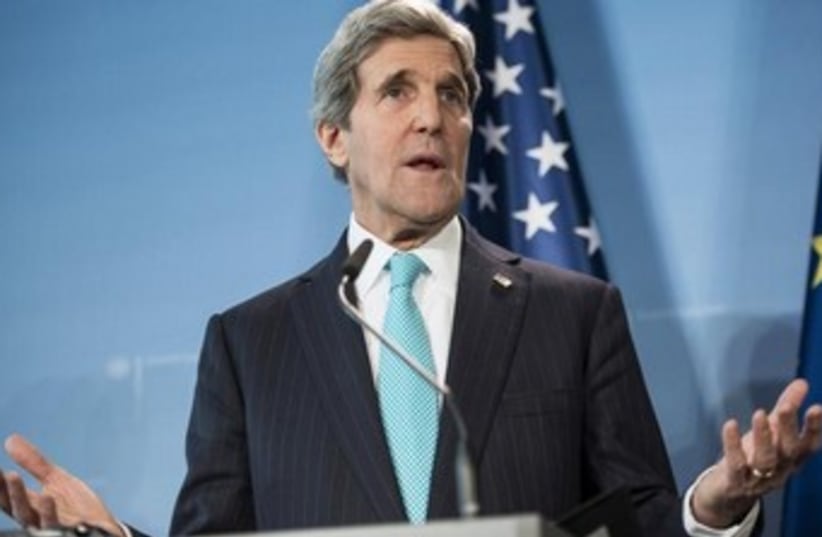"The United States’ position that Israel is the Jewish State has been clear for years and has been consistently made clear by the president and secretary," the official said. "Secretary Kerry repeated this again yesterday to Congress."
Additionally, a senior congressional aide emphasized that Kerry did not specifically name Netanyahu during his Thursday testimony to the House committee.
Netanyahu is the first prime minister to consider the condition a requisite for peace. He emphasized that condition multiple times during his visit to Washington last week.
Netanyahu has said that the PLO's public recognition of Israel as a Jewish state is a "minimal requirement for peace," and considers the issue fundamental to the conflict: Arab refusal to accept a permanent Jewish presence in the region.Palestinian negotiators say that no other Arab nation that has made peace with Israel has had to declare it the Jewish homeland.Kerry dampened expectations surrounding a visit by Palestinian Authority President Mahmoud Abbas to Washington next week, warning that trust between Israeli and Palestinian negotiators had hit a low point.Abbas is to meet with President Barack Obama in the White House on Monday, along with Kerry, who has moderated negotiations between Israel and the PLO for nine months. A key juncture for those talks is fast approaching: an April deadline that will mark either the end of talks over a two-state solution, or the continuation of those talks under a formal framework agreement.But at a Senate hearing on Wednesday, Kerry expressed skepticism that Israel and the Palestinians would even be able to agree on a framework to continue negotiations.“The level of mistrust is as large as any level of mistrust I’ve ever seen, on both sides,” Kerry said. “Neither believes the other is really serious. Neither believes that the other is prepared to make some of the big choices that have to be made here.”Kerry said he was hopeful, nevertheless, that the two sides would manage to settle on “some kind of understanding of the road forward,” even if “big-ticket items” – such as the status of Israel as the Jewish homeland, or the future capital of a Palestinian state – were not directly addressed.Obama has been largely hands-off on the peace talks up until recently, when he personally pressed Prime Minister Benyamin Netanyahu, during his own visit to the White House last week, to close the framework with Abbas.During that Oval Office meeting, Netanyahu aired his own critiques of the talks in front of the president and his press corps.“Israel has been doing its part, and I regret to say that the Palestinians haven’t,” Netanyahu said. “What we want is peace, not a piece of paper.”US State Department officials told The Jerusalem Post that Israel’s decision on whether to follow through with its final release of prisoners next week, a condition of the original agreement that jump-started direct negotiations, would be a harbinger for whether or not talks continue.
